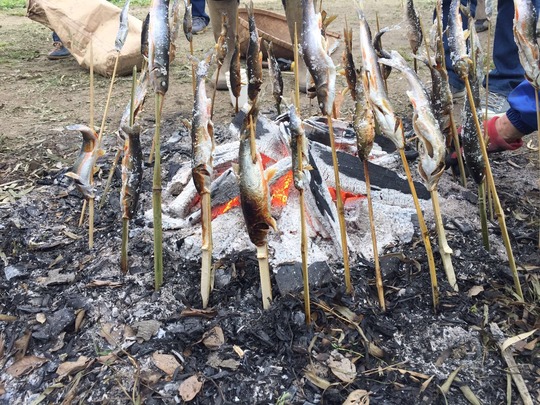
Report: Agricultural training in Tsukubamirai Huang Weiwei
- Time and Date
- April 22 (Sat.), 2017
- Venue
- Tsukubamirai city, Ibaraki Prefecture
- Organized by
- Educational Project 2 “Praxis of Coexistence in Cultural Diversity”, Integrated Human Sciences Program for Cultural Diversity, The University of Tokyo
On April 22, Project 2 “Praxis of Coexistence in Cultural Diversity” organized agricultural training in Tsukubamirai. The activity was co-held by the “Community of Furuse”(“古瀬の会” in Japanese, hereafter referred to as “the Community”), a NPO aiming to protect nature and traditional culture as well as increase the communication between city and village. The participation of this agricultural training included students and professors of IHS and the Department of Global Agricultural Science of the University of Tokyo.
We gathered at 9:40 am in Kokinu Station and then walked about 20 minutes to the field. It was cloudy with little sunshine in the morning, and was very suitable for outdoor activities. After arriving at the field, members of the Community gave a brief introduction to the agricultural training and showed us the design sample of the rice paddy art for this year, which looked like a cute bee. Then, we stared to deal with our first task: sowing the rice seeds. A member of the Community gave a demonstration first and then we tried to sow by ourselves. There were already appropriate amounts of soil in each rectangular container in which we were going to sow. After watering the soil, we spread the rice seeds into the soil and spread more soil over the seeds. Later, the containers with seeds should be put in warm house and kept for three days. When the seeds germinate, they would be moved outdoors to get sunshine. What should be noted is that there was no pesticide during the whole process and the rice would grow organically.
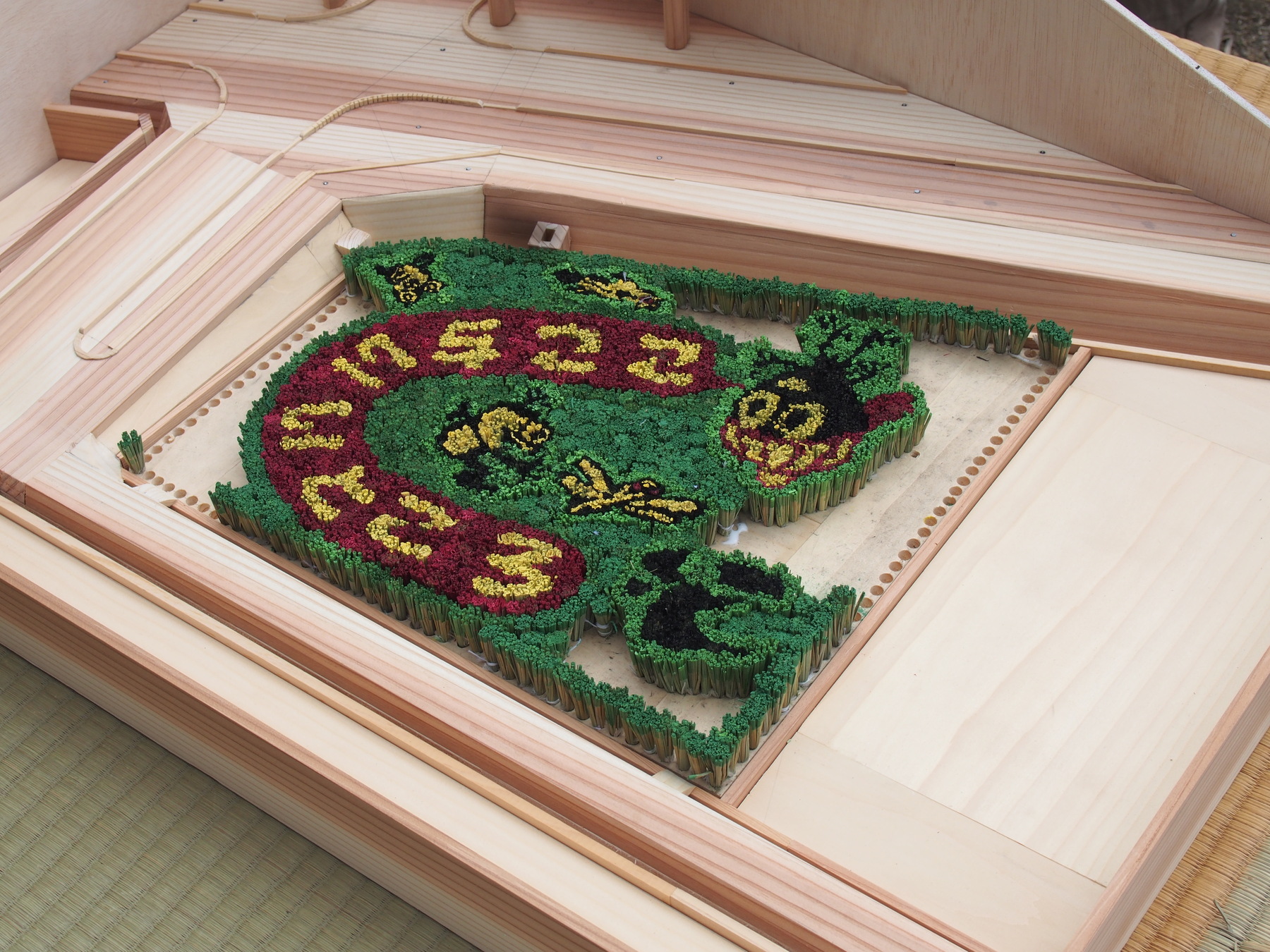
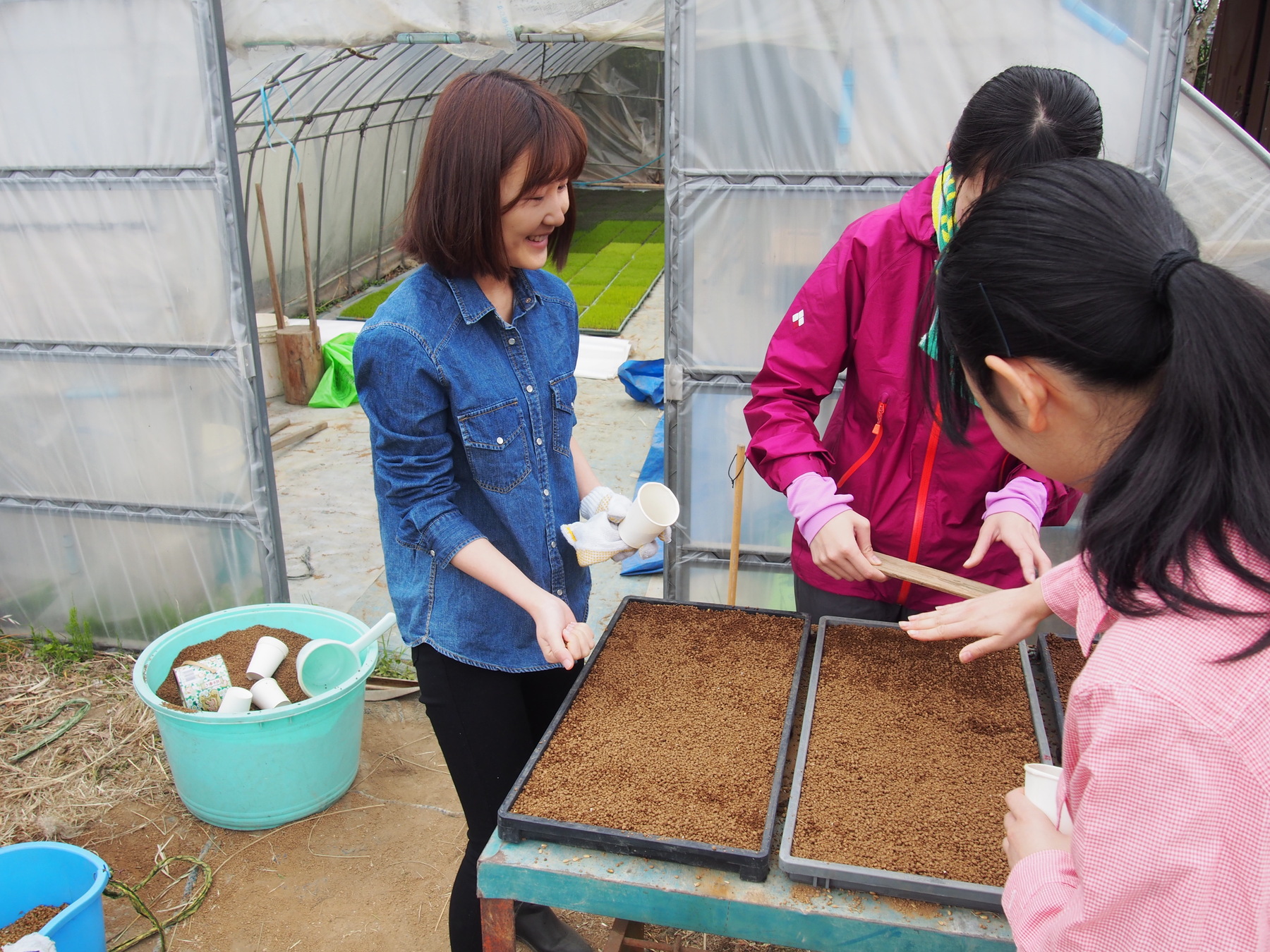
At noon, we moved to the community center to have lunch and took a short rest. We had curry and rice for lunch and the rice was locally grown. It was very delicious. Living in the city, maybe we eat delicacies too often and perhaps it is time for us to come back to nature and enjoy some simple but healthy food. During the lunch, I could have some small talk with the students majoring in Global Agriculture and become more familiar with them. I was told that agricultural training was a significant part of their major study, and that they would undertake agricultural training several times a year, both domestically and overseas. What they study was totally different from my major and it was great to communicate like this and to learn more about their typical experience, which I had not known about before.
In the afternoon, we had barbecued fish. The fish was just caught and still alive. We cooperated to do most of the work by ourselves, following the instruction of the members of the Community. Some students were responsible for lighting the fire, while some were responsible for chipping wood to make sticks for the barbecue. Another three students and I mainly gutted fish with sticks and rubbed salt into them. When we barbecued the fish, it suddenly started to rain. Our solution was to stand in a circle and hold an umbrella together to protect the fish and fire from the rain. Finally, we ate the fish and it was good. Later, we learned to make soba noodles and it was an impressive experience because it was actually my first time to see the process of soba-making, not to mention making it by myself. The making process was not as easy as it seemed, especially when we tried to roll out the dough as the dough easily split into several pieces. The experience of fish barbecue and soba-making reminded me of the importance of food, and to appreciate the food as well as the people who make it for us.
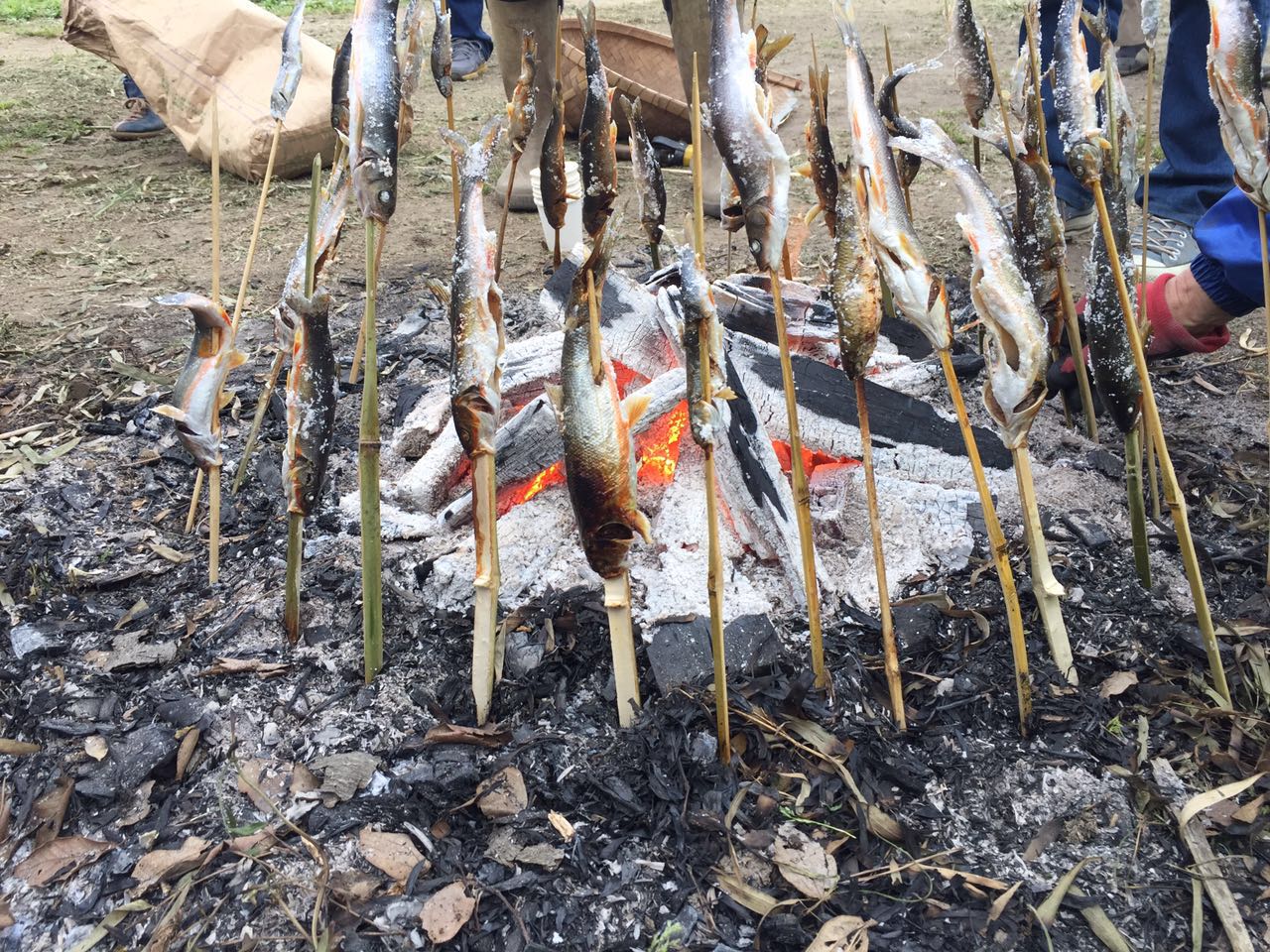
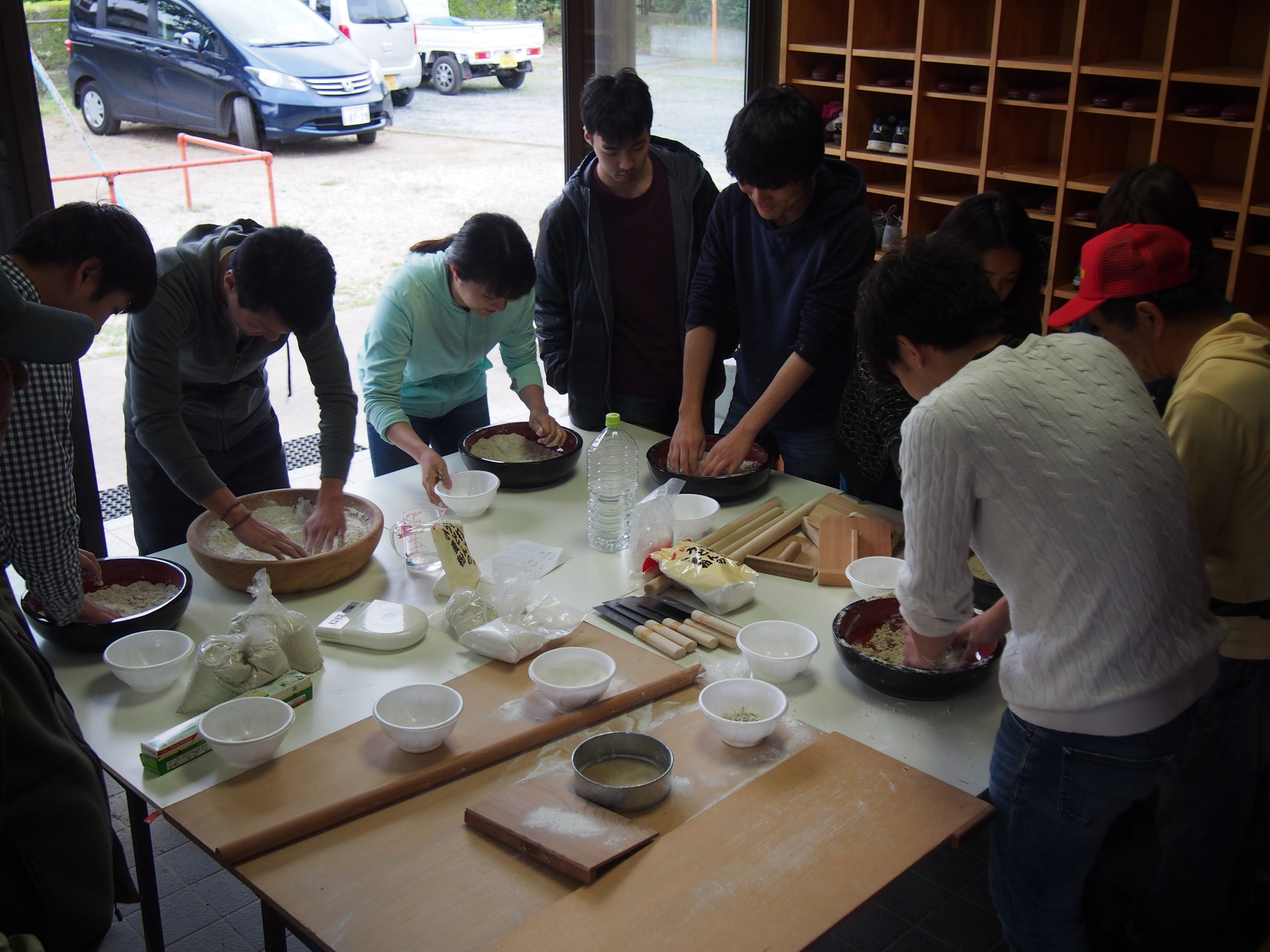
At about 5:00 pm the meeting of the community began and we sat in on the meeting. To every community member who attended the meeting, a detailed list of the budget of the Community was distributed. The speaker explained in detail about the activities they had done and the revenue and expenditure of their budget. This reminded me of the democracy of the local community. Budget transparency is no doubt one of the most important parts. Another point I noticed was that most of those attending the meeting were elderly, which, to some extent, reflect the aging population in Japan, especially in rural area. After the meeting, we had dinner together with members of the community. Later, as it was rainy outside, members of the community kindly drove us to the station.
In conclusion, it was my very first time to experience Japanese agricultural culture and I really enjoyed this training. I have spent most of my stay in Tokyo, the large and modernized city and thus have had few chances to explore other parts of Japan. Thanks to this training, I could experience the culture in rural Japan, which is more traditional, more enthusiastic, and closer to nature. Supermarket is not actually the “origin” of food, but just the place where it is bought. During this training we tried to make food by ourselves, to explore the actual origin of much of our food before it is moved to cities, and to develop our appreciation for food and nature. In addition, it was great for me to take part in a one-day activity completely in Japanese, but professors and other participants were so kind to carefully explain to me when I could not understand the Japanese instructions during the training. I am very grateful for their help and I definitely want to take part in activities like this again in the future!
報告日:May 5, 2017


